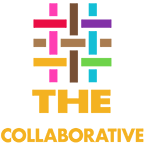

Cross-posted from the Center of Excellence for Transgender Health at UCSF
Tuesday, April 18 is National Transgender HIV Testing Day (NTHTD), an observance designed to recognize the importance of routine HIV testing, status awareness and continued focus on HIV prevention and treatment efforts among transgender people. Transgender women are at high risk of having HIV and of contracting HIV.
In the United States, it is estimated that around 1.4 million adults identify as transgender. Transgender women are at high risk of having HIV and of contracting HIV. Transgender women of color, especially black/African American and Hispanic/Latina women, experience disproportionately high rates of HIV. There is a gap in research on HIV and transgender men; few studies have gathered HIV prevalence data for this population.
Access a toolkit from the Transgender Center of Excellence of below:
- Complete Toolkit (3.4 MB)
- Acknowledgements
- Cover and Contents
- Overview
- How to Use This Toolkit
- Module 1: Get the Facts about Trans People and HIV
- Module 2: Testing and Enhanced Communication Approaches with Trans People
- Module 3: Building Capacity to Increase HIV Testing Efforts for Trans People
- Module 4: Community Engagement and National HIV Transgender HIV Testing Day
- Module 5: NTHTD and Toolkit Resources

Access infographics from AIDSVu that shed light on the disproportionate impact of HIV on the Transgender community.
National Transgender HIV Testing Day
Cross-posted from HIVinfo.NIH.gov

National Transgender HIV Testing Day (NTHTD) is observed each year on April 18. It recognizes the importance of routine HIV testing, status awareness, and continued focus on HIV prevention and treatment efforts in people who are transgender or gender nonbinary. NTHTD was established in 2016 by the Centers for Disease Control and Prevention (CDC) and the University of California, San Francisco Transgender Center of Excellence.
In 2019, adult and adolescent transgender people composed 2% of new HIV diagnoses in the United States. Transgender people face many challenges in the prevention, testing, and treatment of HIV. HIV stigma may prevent transgender people from learning about their HIV status. For example, it was found that HIV stigma was associated with delaying regular HIV testing among some young transgender women. While many people taking HIV medicines are virally suppressed, skipping doses of HIV medicines can quickly change their viral loads. Transgender people also face challenges in maintaining viral suppression due to multiple missed doses of HIV treatment, missed medical appointments, HIV stigma, transphobic discrimination, and difficulty accessing other important health care services. Data show that 43% of transgender people with HIV missed at least one medical appointment in the past 12 months, delaying their viral suppression (HIV and Transgender People: Viral Suppression, CDC).

The National Institutes of Health (NIH) supports research to address factors that cause disparities in HIV prevention, incidence, and treatment among different populations, including transgender people. The Sexual & Gender Minority Research Office (SGMRO) conducts Health Research Regional Workshops, Listening Sessions, and the SGM Administrative Supplements Program. The work that SGMRO undertakes helps to enhance our understanding of the health disparities encountered by transgender individuals.
Browse the links on this page to learn more about this annual observance and to find related transgender-specific information on HIV and AIDS.
National Transgender HIV Testing Day Resources
From the CDC
From HIV.gov
NIH Research Related to HIV and AIDS in Transgender and Nonbinary People
- NIH Strategic Plan for HIV and HIV-Related Research (for fiscal years 2021—2025). Developed by the NIH Office of AIDS Research, the plan describes NIH research priorities to prevent, treat, and eventually cure HIV and AIDS. Key NIH research areas include investigating factors influencing inequalities in HIV testing, engagement, and health outcomes, as well as strategies to mitigate HIV-associated stigma and discrimination.
- Clinical Trials Related to HIV and AIDS and Transgender People. These research studies related from ClinicaTrials.gov are related to HIV and AIDS and transgender people. Call ClinicalInfo at 1-800-448-0440 for assistance with your clinical trial search.
Current Research Related to HIV and AIDS in Transgender and Nonbinary People
- From PubMed.gov
Additional Information and Resources
From HIVinfo
- Specific Populations: Lesbian, Gay, Bisexual, and Transgender (LGBTQ+)
- HIV Prevention: Testing
